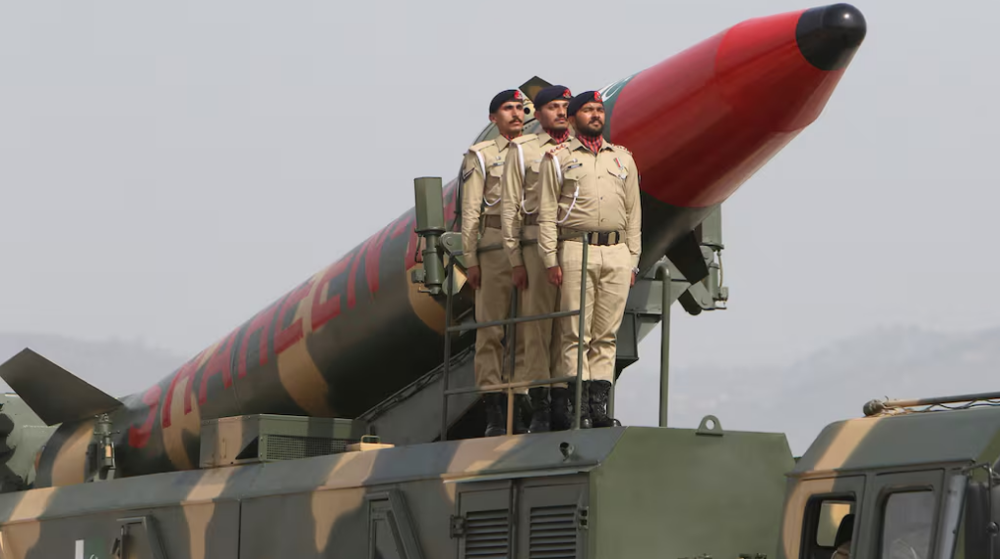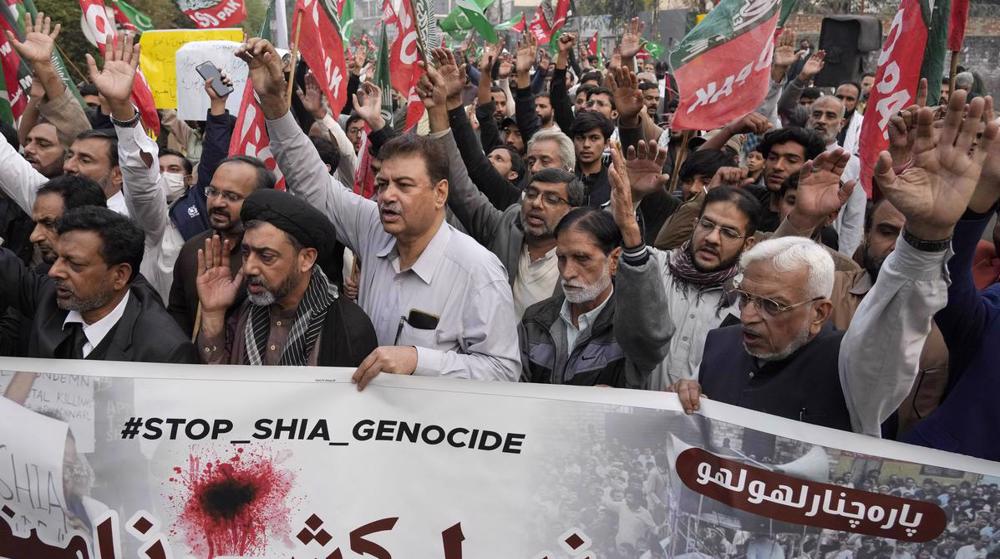Pakistani forces rescue kidnapped son of famous slain governor
Pakistani counter-terrorism forces have rescued the kidnapped son of a famous slain governor, who was abducted from the eastern city of Lahore five years ago.
Aitzaz Goraya, the head of the regional Counter-Terrorism Department, said Tuesday that Shahbaz Taseer was rescued after security forces launched a targeted operation upon an intelligence tip-off near Quetta, the volatile capital of the southwestern province of Balochistan.
"Acting on a tip-off, intelligence forces and police went to a compound in the Kuchlak district some 25 kilometers north of Quetta", Goraya said, adding, "We surrounded the compound and we raided it. We didn't find anyone. A single person was there and he told us my name is Shahbaz and my father's name is Salmaan Taseer."
Meanwhile, Anwarul Haq Kakar, a spokesman for the Balochistan administration, also confirmed the release of the son of assassinated Salmaan Taseer, the former governor of Punjab Province. "I can confirm that Taseer has been safely recovered. He is in safe hands."
Shahbaz was believed to have been originally kidnapped by members of a notorious outlawed anti-Shia terrorist group known as Lashkar-e-Jhangvi (LeJ) from Lahore City in August 2011, eight months after his father was assassinated by his guard in the capital, Islamabad. He was later handed to al-Qaeda and then to the Pakistani Taliban.
Sources say Taseer was being kept somewhere in militant-riddled northwestern tribal areas near the Afghan border. He was moved after the Pakistani military launched a high-scale operation in North Waziristan in 2014.
The release comes days after Pakistan hanged Mumtaz Qadri, a former police bodyguard who shot Taseer - the high-profile member of the Pakistan People's Party (PPP) and Punjab Governor - 28 times while guarding him in an Islamabad market in early 2011.
Qadri was executed at Adiala jail in Rawalpindi on February 29, after all his petitions and mercy appeals were rejected.
The guard had told police that he killed Taseer because the provincial governor sought reforms to Pakistan's blasphemy law.

The execution has triggered protests in some cities by supporters of extremist and militant groups. Qadri’s funeral brought supporters of pro-Saudi Wahhabi groups on to the streets, who hailed him as a hero.
Taliban and other militant groups had earlier threatened to unleash attacks if Qadri was executed.
Critics say Pakistan's blasphemy law is largely misused, with hundreds of people languishing in jails under false charges. In most cases, even unproven allegations frequently stir mob violence and bloodshed.
The law has raised concerns among rights activists and some liberal politicians who say it is often exploited by extremists or those who want to settle personal scores.
In late January, Chris Murphy, a top American senator, accused Saudi Arabia of funding some 24,000 Wahhabi religious schools in Pakistan through an unleashed “tsunami of money” in order to “export intolerance” across the country.
VIDEO | Yemenis praise the military for its successful operations against Israel
VIDEO | Israel continues to bomb Gaza homes
VIDEO | An insider's view of the country: Meybod City in Yazd
‘All wars have rules. All of those rules have been broken’ by Israel
VIDEO | Report flags India’s violation of rights of Rohingya detainees
Turkey's foreign minister meets Syria's de facto leader in Damascus
VIDEO | US Syria plots
'Next to impossible' to rescue patients from Gaza's Kamal Adwan Hospital: Director
















 This makes it easy to access the Press TV website
This makes it easy to access the Press TV website